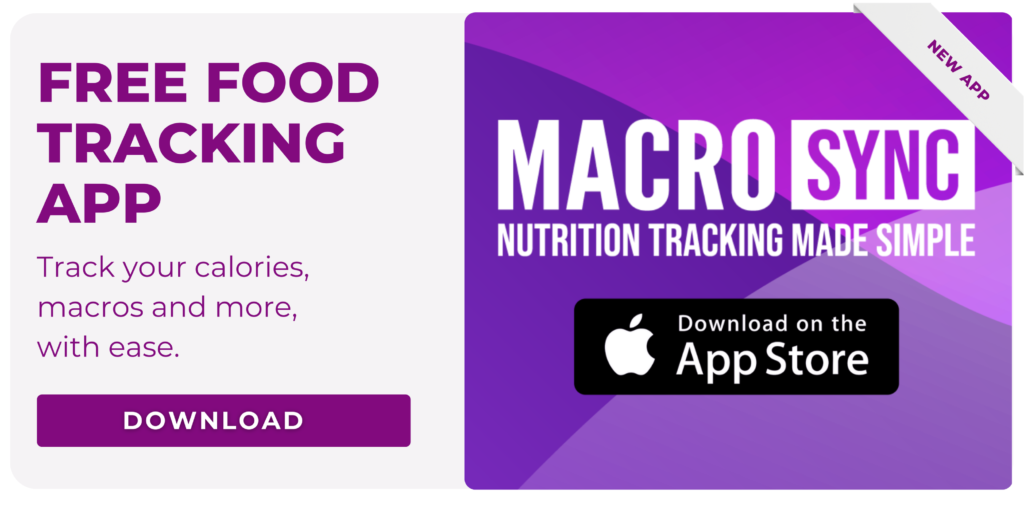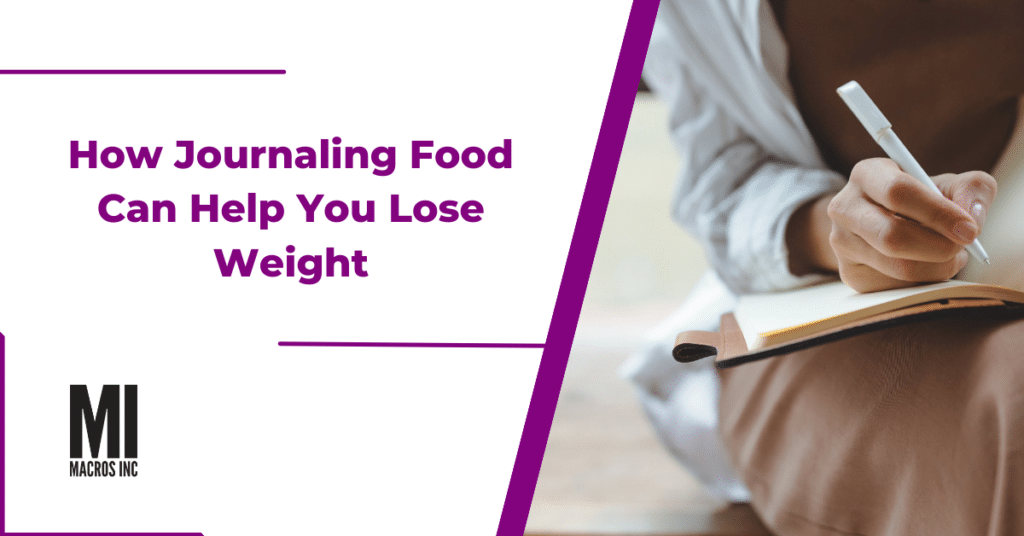Although there are endless diet plans out there for weight loss, sometimes the simplest options can work the best. One of these is journaling food intake, also known as a food diary. If you think a food diary might be a bit too basic for your weight loss needs, we’re here to change that.
Below, we’ll discuss how journaling food can help you lose weight and cover some tips on how to get the most from the process.
Jump to a Topic
What is a Food Diary?
Simply put, a food diary is a journal you keep of all the food you eat and drink. At the most basic level, it’s a log of everything you consume throughout the day, but some more specific additions include:
- The time and place
- How much you ate (portion size or number of a countable food)
- Specific ingredients you might be watching (either for macros or sensitivities)
- Your general well-being, before, during, and after.
You can theoretically keep journaling food for as long as you want. Most plans recommend at least a few days, but several weeks or even months can help a lot. It ultimately depends on what you’re trying to track with your food diary.
An example of a basic food diary might look like this:
- Breakfast: 40g of oatmeal, 180ml of. 2% milk, a banana, and a cup of black coffee.
- Lunch: Chicken and salad sandwich on wholewheat with mayonnaise, 30g salted tortilla chips.
- Dinner: 75g wholewheat pasta with homemade tomato sauce, side salad, and a glass of sugar-free soda.
This is about as basic as you’ll want to get when journaling food. It’s not necessary to weigh everything unless you’re being really strict, but you should definitely weigh things that have specific portion sizes.
How Does Journaling Food Help You Lose Weight?
So, how does keeping a food diary help you to lose weight? It might already be obvious, but let’s dig into the reasons below.
1. Journaling Food Increases Awareness
The most obvious place to start is with the awareness a food diary offers. Losing weight comes down to taking in fewer calories than you burn. Of course, it can be a lot more intricate, but this is the basic logic.
Keeping track of your food and drink, unsurprisingly, makes you more aware of what you’re actually eating. Monitoring both portion sizes and types of food is important for this, though.
For example, your portion sizes might be fine, but you might be consuming too much calorie-dense, nutrient-lacking food. Alternatively, you might be eating perfectly healthy food, just too much of it.
Another typical black hole is what you drink, particularly alcohol and soda. Both can be high in sugar, which is empty calories. You might not be aware of how much you consume, so seeing it written down can be a big help.
There’s plenty of research out there linking food diaries to successful weight loss. A 2011 study investigated 15 previous studies focusing on exactly this. The key takeaway is that the method is linked to significant weight loss in the studies.
2. Journaling Food Helps You Understand Secondary Factors
Although weight loss comes down to calorie deficit, understanding other factors that might influence your eating and drinking can help massively. This is why, for example, it helps to track your feelings before, during and after eating.
This information can help you understand potential triggers for consuming sugary or fatty foods, which obviously aren’t helpful for weight loss. Hopefully, you can then use this to make conscious changes about the behavior that leads to unhealthy eating, which is just as important in an overall weight loss plan.
3. It Can Help You Pinpoint Food Sensitivities
Food sensitivities and intolerances aren’t directly linked to weight gain or weight loss (at least not healthy weight loss!). However, knowing about any potential sensitivities can help you better plan your overall healthy diet and reduce the risk of you not being able to exercise due to illness.
Dieticians will often recommend journaling food to monitor intolerances, often as part of an elimination diet. So, while you can start the diary yourself, it’s often worth consulting a qualified dietician once you have some information, as they’ll be better equipped to advise you on the next steps.
The bottom line is that keeping a food diary builds healthy eating habits, both directly and indirectly. This is an important backbone for appropriate weight loss because it makes you aware of the food you consume and identify the source of any empty calories.

Tips for Keeping a Food Diary
Journaling food might not seem particularly difficult—and it’s not—but it can help to have some tips before you get started so you don’t have to learn as you go. So on that note, here’s how to get the most from your food diary.
1. Track As You Go
Don’t wait to write everything down at the end of the day—log your food and drink intake as you go. A 2013 study found that the longer you leave your diary entries, the more likely they are to be incorrect.
Of course, tracking this sort of thing shouldn’t be a problem. Your phone’s notes app will be fine, but you can also use a dedicated tracking app instead.
2. Be Sure To Include Everything
If you’re tracking calories and macros for weight loss, you need to include everything. It might be tempting to leave out a little snack or a drive-by nibble as you walk through the kitchen, but these are often where the hidden calories come from.
Similarly, this goes back to the awareness point above. If you ignore quick snacks, you’re not making yourself aware of this as a potentially bad habit. For example, say you pick up a handful of chips every now and then. Over a few trips, you might have suddenly eaten the whole bag. Not logging this is a big missing source of calories.
3. Try To Be As Specific As You Can
Make sure, where possible, you include portion sizes at the very least. For weight loss, it can help to track macros like carbs and fat as well as calories. If you’re preparing your own meals, this might be difficult unless you’re using a recipe that provides this information.
However, you can usually find some relevant information on food tracking apps, or even Google for basic foods. It can also help to use a measuring cup for drinks as well as weighing foods before cooking. This sort of information is vital if you’re serious about using a food diary for tracking your weight loss.
Final Thoughts
The bottom line is that journaling food is a really useful way to lose weight. Most importantly, it helps create good eating habits and awareness, which can support long-term weight loss. After all, dietary changes are as much about lifestyle adjustments as they are eating fewer calories.
Hopefully, the tips above will help you to start keeping a food diary. Play about with some options to see what works best for you and your weight loss goals.
Try our nutrition coaching, for free!
Be the next success story. Over 30,000 have trusted Macros Inc to transform their health.
Simply fill out the form below to start your 14-day risk-free journey. Let's achieve your goals together!

